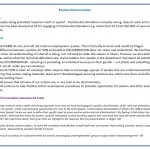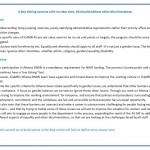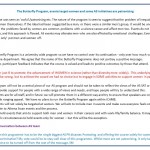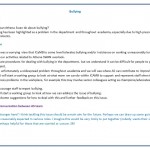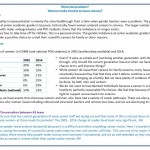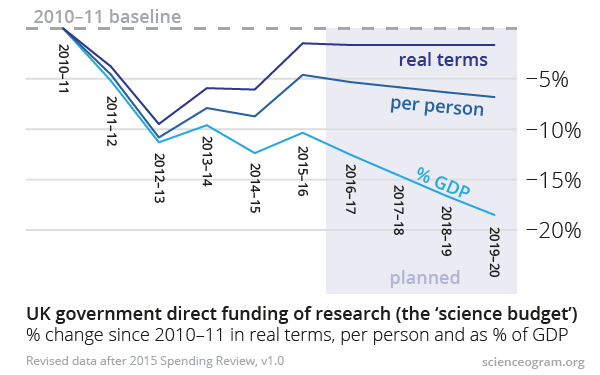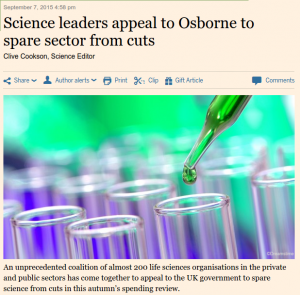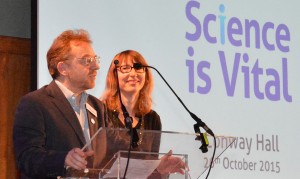by Paula Salgado
 Science is Vital is a grass roots campaign of UK scientists and supporters of science who believe that a strong science base is vital to the UK’s economy and reputation. It launched its latest initiative to persuade the Government to increase investment in research and development (R&D) in the 2015-16 budget, details of which will be announced on June 26. ICaMB’s blog own Paula Salgado, member of the Science is Vital Executive Committee, recalls the earlier campaigns and explains all about the current petition and ongoing survey.
Science is Vital is a grass roots campaign of UK scientists and supporters of science who believe that a strong science base is vital to the UK’s economy and reputation. It launched its latest initiative to persuade the Government to increase investment in research and development (R&D) in the 2015-16 budget, details of which will be announced on June 26. ICaMB’s blog own Paula Salgado, member of the Science is Vital Executive Committee, recalls the earlier campaigns and explains all about the current petition and ongoing survey.
Background
It all started in September 2010, when a speech by the then recently appointed BIS secretary, Vince Cable, and rumours from the Government suggested major cuts – up to 25-35% – could hit the science budget. That led Jenny Rohn to a call for action and many scientists and non-scientists responded.
I am happy and proud to say I was of the initial wave of supporters. In only a few hours, there’s a Facebook page, in next couple of days the domain was registered and a page created: the Science is Vital campaign was born. From the first moment, there was a clear intent to make this campaign about a key point: cutting science funding is not good for the economy. For me, having taken part in many demonstrations and campaigns as a student back in Portugal, this was a crucial point that made believe this was a campaign with a difference.
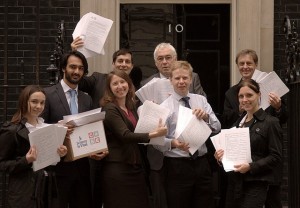
Delivering Science is Vital petition with ~33K signatures to N.10 (Photo by Joe Dunckley)
A petition gathered over 33,000 signatures in roughly 6 weeks, including many notable scientists and public figures, as well as the support of many learned societies, patient organisations and other NGO groups.
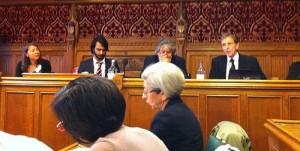
Lobbying Parliament to protect Science Funding (2010)
The campaign also included letters to MPs and a parliamentary lobby session, where we had an opportunity to directly address the issues with our representatives.
Finally, the campaign culminated with a rally in front of the Treasury:
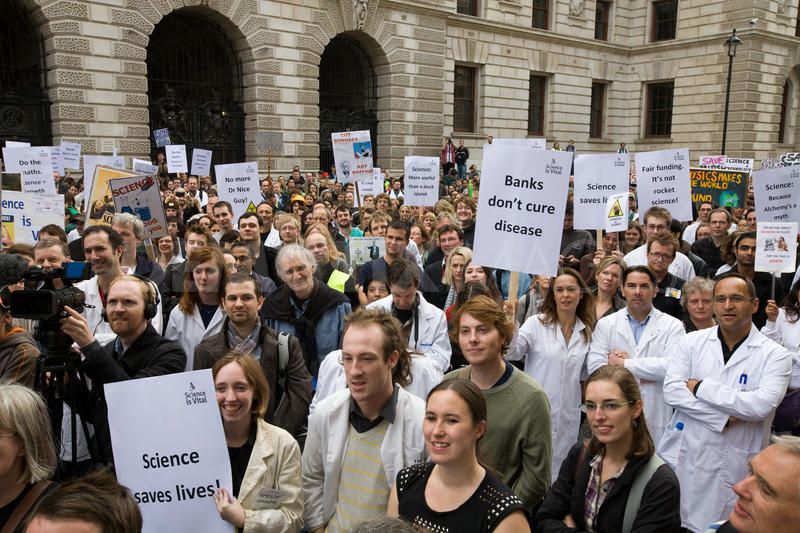
Scientists in white lab coats and many non-scientist supporters at the rally in October 2010

Stewarding at the rally
I was there, helping as a steward (still not sure how that happened!) and seeing a constant stream of white coats and many non-scientist supporters streaming from the tube station was a very memorable sight. I even met a Portuguese colleague that had also been in many of those demonstrations back home and we couldn’t help comparing the situations and behaviours.
The result: cash-freeze
Despite the massive support gathered in such a short period of time, many of those involved, including me, were still unsure of how successful we could be at avoiding cuts… When the announcements were made and it was revealed that the science budget would be frozen for the next 4 years, we felt relieved, happy. I must admit I was also surprised: this was the first campaign I had taken part that was somewhat successful!
However, this was clearly a bitter-sweet victory: we were protected from deep cuts, but a cash-freeze means at least a 10% reduction in real terms due to inflation alone and cuts of up to 50% in capital spending and in many departments R&D budgets meant this was not great news for science in the UK in the long term.
Inspired by this result, SiV has continued to campaign, focusing on issues such as Science Careers and I continued to volunteer and help when I could. Last summer, at the First AGM, I was elected to become a member of the Executive Committee and have therefore become more involved in all aspects of the campaign.
Reverse the decline in science funding – R&D to 0.8% campaign
Despite the welcomed injections of capital by the Government, that somewhat minimised the effects for specific areas, the effects of the cash-freeze and other cuts are already being felt. A recent study by CaSE (Campaign for Science and Engineering) clearly shows that, at the end of the spending review period (2014-15), there will still be a significant shortfall in science funding in real terms, estimated to be around .
This reduction is already having its effects in the research community and it must be reversed if the UK is to remain at the the forefront of scientific research.
Why a new campaign now?
As you might have heard, the Government is currently discussing a budget review for 2015-16, the results of which will be announced on June 26. There are many indicators of further cuts to announced so there is cause for concern. Despite reassurances from Vince Cable that science funding will be protected, we understand that the Treasury favours a continuation of the cash-freeze. This will continue the current decline and will send dangerous signals against long-term public investment in science.
Bringing in the big names
Our first question was: how can we raise awareness of this renewed threat to science funding and make sure there will be a public discussion on the issue? Getting renowned scientists in the UK to get involved was an obvious choice, and we spent a couple of weeks contacting them. At one point, I remember making the wild suggestion of cold emailing Prof Stephen Hawking, which other committee members thought was a good idea – I can’t tell you how surprised and delighted I when I got an email back, fully supporting the campaign!
So the campaign was launched with a letter in the Daily Telegraph signed by more than 50 prominent scientists in the UK, including Stephen Hawking, Martin Rees, Brian Cox, Paul Nurse and ICaMB’s own Jeff Errington.
We are asking the Government to show a clear long-term commitment to science in UK and set a target to increase public investment in R&D to 0.8% GDP – the G8 average – so we will regain our leading position and compete more effectively with the leading economies of the world.
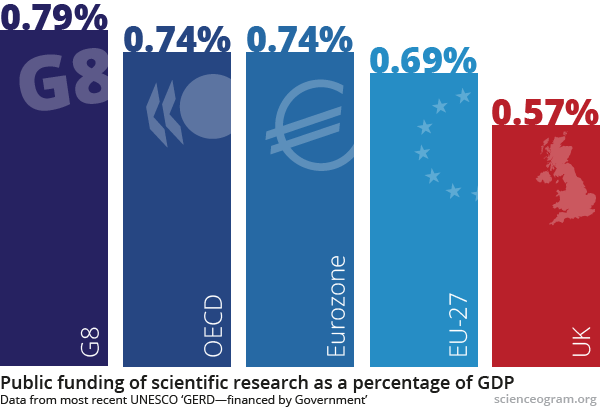
Public spending in R&D as a percentage of GDP (via scienceogram.org)
Science funding in UK needs your help
Now, it’s your turn to help and support us.
We want to prepare a report, detailing the effects of the current cash-freeze is already having in the research community and alerting the Government for the dangers in pursuing the current policy of managed declined. For that, we need data. So please take our survey and tell us what you think.
We have prepared a public petition and ask you all to sign it. Importantly, we need to spread the word. As in 2010, we have used social media networks to tell people about the campaign. So please, sign it and tell everyone you know.
Also, you can write to your MP to get them involved in the discussion.
Science in UK needs you now. We only have a few weeks to get this important message across: Science is Vital for the UK.
A scientific note:

60 years ago today, a ground breaking discovery was printed in Nature:
James Watson and Francis Crick published their proposed DNA structure, based on X-ray data collected by Rosalind Franklin, then working with Maurice Wilkins. There is hardly a need to explain the immense impact this paper had in science, medicine and our views of the world.
The fact that this was carried out in UK labs, with public funding, is one of the many examples of excellence in UK science.
We can not let this leading position be eroded, so what better way to celebrate it than join a campaign to help reverse science funding?
Science is Vital http://scienceisvital.org.uk/
R&D 0.8% campaign http://scienceisvital.org.uk/latest/
CaSE http://sciencecampaign.org.uk/
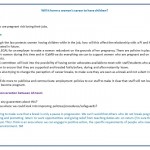 Having children harms your career
Having children harms your career
